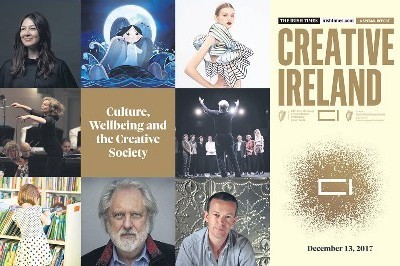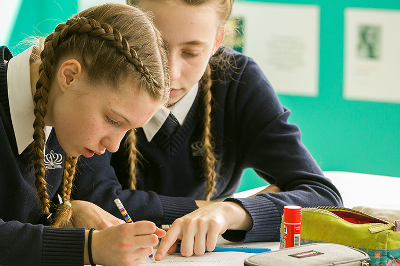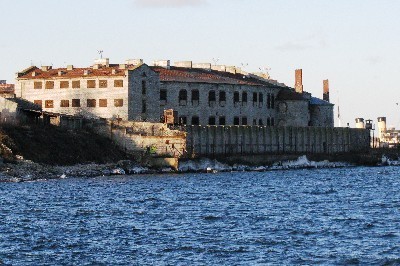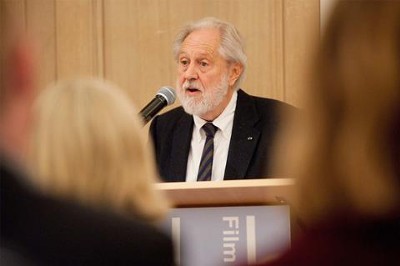 In recent months, discussions about artificial intelligence and automated technology have become commonplace in parliaments, boardrooms and households around the world. People are worried about how digital change will affect their jobs, their industries and their nation’s economic output. The increased automation of many professions signals these as legitimate concerns, and leaders need to prepare their citizens accordingly for what lies ahead.
In recent months, discussions about artificial intelligence and automated technology have become commonplace in parliaments, boardrooms and households around the world. People are worried about how digital change will affect their jobs, their industries and their nation’s economic output. The increased automation of many professions signals these as legitimate concerns, and leaders need to prepare their citizens accordingly for what lies ahead.
Recent research suggests that creative jobs are far less at risk to automation than other areas of employment. This is largely because they require uniquely human skills – an ability to think in a way that computers, at least for the present, cannot.
It is partly for this reason that industries with creativity at their heart are now among the fastest growing in the world.
It’s already the case that in the UK, the creative industries contribute more to the economy than the automotive, oil and gas, aerospace and life sciences industries combined.
The sector is generating £87 billion a year and employment is growing at four times the rate of the workforce as a whole – with one in 11 people now working in ‘creative roles’. These are exactly the kind of careers that ambitious young people yearn for. In every sense, the days when anyone could credibly claim that creative industries lie at the margins of the economy are, thankfully, long gone.
The burgeoning ‘creative-tech’ sector, built around innovations such as virtual and augmented reality, 5G, 3D printing and other new techniques, is increasingly being recognised by government as a means to keep innovation strong, and to ensure industry will be competitive in a crowded global marketplace.
Industries such as games, animation and visual effects, which rely on a mixture of creative and digital skills, are driving much of the growth in the UK and elsewhere through a combination of inward investment, and the export of their products and services to companies around the globe. For example, three of the most successful film franchises in recent history, Star Wars, James Bond and Harry Potter, have been based in the UK – the beneficiaries of both a well-developed system of tax reliefs, and the consistent quality of its skills base and infrastructure.
The phenomenal success of the sector has meant that the best creative companies in the UK are increasingly finding themselves growing businesses that require visionary and effective leadership, people ready to seize the opportunities of the digital age rather than befuddled by its challenges.
Research conducted by Creative Skillset in its 2015 report Creativity and Constraint found that leadership and management skills for creative leaders, especially in micro companies, was sorely lacking. Transitioning from “successful creative” to “successful entrepreneur” can present new and unexpected challenges when seeking to drive commercial growth. Thus, the development of future leaders in the creative industries needs to be dramatically improved. Post-Brexit, this will be particularly true for us in Ireland.
Recently, Ireland’s creative sector has enjoyed more attention with the country’s national economic debate, particularly with the launch of initiatives like the Creative Ireland Programme and the Whitaker Institute’s Creative Edge Project, which deserves enormous praise in its intention to “increase the active participation of local creative firms and organisations in global markets; and boost their ability to attract and utilise local emerging talent . ..” Similarly, the strategy announced by the Creative Ireland Programme has underlined the need to value culture as “a means of fostering a more sustainable future for Ireland, including through economic and social policy”.
This strategy correctly identifies Ireland’s unique creative heritage, and the need to develop it for a 21st-century global audience. It is increasingly obvious that Ireland has the talent and imagination to become a serious global player in the creative economy, but this can only be achieved if strategic planning evolves into concrete action.
Creativity is itself about turning complex ideas into practical, and marketable solutions.
It’s essential that government and evolving industry nurture, not only their own creative muscle, but also the necessary degree of focus, tenacity, resilience and business acumen required to drive Ireland’s native creativity to international success.
It is vital for politicians and business leaders to start prioritising support for the creative economy and investing in research and development. A reassessment of the role of creative and arts education alongside technical and science disciplines would be a good place to start.
Beyond this, there must be an acknowledgment that creative organisations themselves need help in adapting to the pace of change presented by the digital world.
We must foster both a creative workforce and creative leaders.
Therefore, we must help creative entrepreneurs to balance the demands of running a successful commercial enterprise whilst maintaining creative excellence.
In July of this year, I was delighted to be appointed to the House of Lords Select Committee on Artificial Intelligence, and have found myself on a steep learning curve in coming to terms with the economic, ethical and social implications of advances in this sector. What has become abundantly clear is the need to harness the imagination and curiosity of young people if we’re to create a workforce that can exist harmoniously with the evermore automated industries of the future. Here again, we must acknowledge that it’s not just about developing this new workforce, it’s also about moulding the people who will lead it.
If our creative industries are to be the pacemakers of tomorrow’s economies, then their leaders will, of necessity, be among the architects of our future.
Such a generation of would-be leaders must be equipped to assess change, and look across their entire sector to exploit the extraordinary opportunities this rapidly evolving digital world has to offer. Those who can successfully demonstrate this complementary skillset will be the men and women who’ll deliver the final piece of the jigsaw that determines the success of Ireland’s creative industries.
A few months ago, I was fortunate enough to visit Pixar Studios in California, and spent some time speaking to animators and creators about their work. They generally believe that creativity requires us to loosen controls, accept risk, trust colleagues, and pay attention to anything that smacks of “fear”. They rightly see a fear of failure as the enemy of creativity.
Putting these things in place doesn’t necessarily make the managing of a creative culture easier; but as the co-founder of Pixar Ed Catmull, once said, “ease isn’t the goal; excellence is”.
Transforming Ireland’s creative industries so that they can compete on the international stage will require organisation, hard work and determination. If the digital world is to prove a positive force in creating opportunities for Ireland’s young people, then cultivating inherently human qualities, such as adaptability, social intelligence, creative thought and leadership, will be crucial to ensuring prosperity in the years ahead.
In other words, creativity – in how we think, work, and lead – is the greatest asset a nation can possess. Let’s embrace it.








